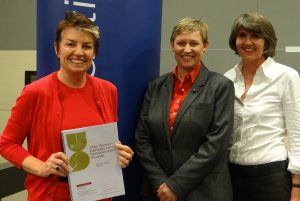Our commitment to research and evidence
Research
The Mercy Foundation has a commitment to staying well informed and up-to-date on homelessness, housing and other key social justice issues. In order to advocate for policy and program change that is ‘evidence based’ it is essential that we know what works and why.
Latest research:
Beyond Storytelling: Towards Survivor Informed Responses to Modern Slavery (September 2022) This report by Francis Simmons and Jennifer Burn (UTS) shines a light on the contribution that survivors of modern slavery can make to the design, implementation, monitoring and evaluation of Australia’s response to modern slavery. This report challenges our current response to modern slavery and offers us the means of developing effective responses, that are led by the guidance and wisdom of survivors. The Mercy Foundation proudly supported this research through our grants program.
Adelaide Zero Project: Understanding barriers and opportunities to Housing First in Adelaide (Dec 2021) presents the findings of both a deep dive into experiential data within the Adelaide Zero Project, and reflections on such evidence and learnings from the Adelaide Zero Project to date to advance thinking around orienting service delivery to a Housing First approach for people experiencing chronic or rough sleeping homelessness.
A Place to Call Home (Dec. 2021) A report on the Experiences of Homelessness and Housing Exclusion among People Seeking Asylum in Greater Sydney found that years after arriving in Australia, people seeking asylum face chronic homelessness and housing exclusion in the community. The report presents findings from detailed interviews with fourteen women and men seeking asylum, exploring their experiences housing and homelessness, including during the COVID-19 pandemic.
Service or Servitude: A Study of Trafficking for Domestic Work in Australia by Heather Moore (2019). This report analyses 30+ cases of domestic servitude in Australia. It compiles new and existing information from a range of sources, including national and international data on domestic work and migration, current government statistics and personal accounts by individuals who have experienced domestic servitude Australia. The report offers further areas for research and recommendations to address domestic servitude in Australia.
Gender responsive strategies for assisting women experiencing long term and recurrent homelessness by Dr Jane Bullen, 2019. This is the second stage of a research project which aims to identify and assess gender-responsive service strategies and plans for assisting women experiencing long-term and recurrent homelessness, and monitoring of these responses.
Older women and homelessness
Retiring into Poverty – National Plan for Change – Increasing Housing Security for Older Women 2018, was produced by the National Older Women’s Housing and Homelessness Working Group.
Older Women’s Studio Development Project December 2016: co-design project to inform design guidelines suitable to the housing needs of single homeless older women.
A Plan for Change: Homes for Older Single Women, 2016: proposes a number of initiatives to help older women to live in homes that are safe, secure, affordable and appropriate.

Older Women’s pathways out of Homelessness 2014 by Dr Maree Petersen at the University of Queensland was commissioned by the Mercy Foundation to better understand older women’s homelessness.
Recent articles and presentations
Parity October 2020 More than Double Jeopardy, was written by the National Older Women’s Housing and Homelessness Working Group, updating information presented in the group’s 2018 report.
Workshops: Wongee Mia
In October 2021 the Mercy Foundation hosted a workshop with the Wongee Mia team from Ruah in Perth. Wongee Mia is an award winning program that delivers innovative and effective services to Aboriginal people who are experiencing intergenerational poverty and homelessness.
Information sheets about this highly successful program are available to download:
- Wongee Mia – Building authentic relationships
- Wongee Mia – Project background
- Wongee Mia – Navigating the system
- Wongee Mia – Staffing and recruitment
- Wongee Mia – Interconnected caseload
- Wongee Mia – Working with Elders
- Wongee Mia – Learning culture
- Wongee Mia – Genuine choice
- Wongee Mia – Housing options

